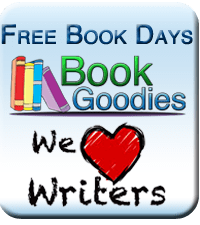Because I’m confused. I am getting mixed messages about a tiny but important word: said. I even felt a little panicked about it at first.
I was taught in school to avoid too much “said”. But then again it was public school in Washington State, so the relevance to current thought is questionable.
Should we writers use “he/she/they said” after dialogue exclusively or should we find more interesting words. Who is right? What do you think?
These people think you need more interesting words:
- http://janienne-jennrich.suite101.com/synonyms-for-said-for-writers-a31840
- http://www.amazon.com/Writers-Guide-Sassy-Synonyms-Said/dp/0967740541
- http://thecaveonline.com/APEH/said.html
- http://www.writingfix.com/PDFs/Writing_Tools/said_synonyms.pdf (this is a school material)
- http://year4atbearwood.wordpress.com/2011/01/25/synonyms-for-said-can-you-add-to-the-list/ (So is this. Are we teaching our kids to be poor writers?)
These people think that anything other than “said” or maybe “asked” detracts from the story, calling them “said bookisms,”
- http://tvtropes.org/pmwiki/pmwiki.php/Main/SaidBookism (This one says it is “Purple Prose” and “Discredited Trope”)
“James Blish told me I had the worst case of “said bookism” (that is, using every word except said to indicate dialogue). He told me to limit the verbs to said, replied,asked, and answered and only when absolutely necessary.”
– Anne McCaffrey http://www.logicalcreativity.com/jon/quotes.html







As an editor, I think that “said” can be overused just as much as any other word. I have edited manuscripts where “said” and other such words were overused in abundance, and it can become rather overwhelming. Much like anything else, I believe in balance with all things. In many cases, you can substitute “said” with a short sentence that conveys the emotion of the character. I think the bottom line is, don’t overuse any one word. Steer clear of using the same word too many times, too close together. I once had a fear of overusing “said”, and I was constantly grilling myself over whether or not I had used it excessively. Keep an eye out, but don’t worry about it too much. Balance, balance, balance–that’s the key.
I like the “balance” plan too. It feels more natural.
It’s best to avoid any dialogue tag when we can. I think folks can agree on that much. Beyond that, I mainly use said/replied/answered and occasionally something more descriptive if it’s needed. Your link examples, though, are great. Don’t you love conflicting “expert” advice?! 🙂
What worries me is that some are from more mainline groups and some are from schools, and they disagree!
I tend to use said quite a bit, but I also like to use something more descriptive at times. I suppose I try not to use anything too much, but who knows which way is really proper!
I think you have to be careful who you get your advice from. The absolute best book for details on writing is ‘Self-editing for Fiction Writers by Renni Browne & Dave King’. Every writer should have it. They explain the reasons for things so that you understand why they work best that way.
On p88 they say. “The only reason you need a tag is so your readers know who is saying what. Don’t use speaker attribution as a way of slipping in explanations of your dialogue. As with all other types of explanations, either they’re unecessary or they’re necessary but shouldn’t be”….”Your best bet is to use the word “said” almost without exception” … “The reason those well intentioned attempts at variety don’t work is that verbs other than “said” tend to draw the reader away from the dialogue. They jump out at the reader, make the reader aware, if only for a second, of the mechanics of writing. They draw attention to your technique, and a technique that distracts the reader is never a good idea. You want your readers to pay attention to your dialogue, not the means by which you get it to them.”
If I think I’ve got too many “saids” I get rid of some of the dialogue tags all together. The point is that the tone of the voice, the emotion, the intent etc should be shown in the action and dialogue themselves, not in the tag.
Haha! My brain hurts!
I have wondered about this and subsequently started paying more attention to it when I read, when a book is really drawing me in and I think it is great and well written, I look to see and try and understand what the author did, especially when the book is suceeding with me and is something I aspire to.
All the various advice seems to point to ‘create your own style, but know why you are doing it, what it is and the effect it has on storytelling’.
It’s a fascinating subject, and I really enjoyed the discussion, thank you. Having absorbed all this I am sure your subconscious has taken note and knows what to do 🙂
Yes it does! I am always drawn toward the “balance” mindset. Plus, I like to break the rules occasionally!